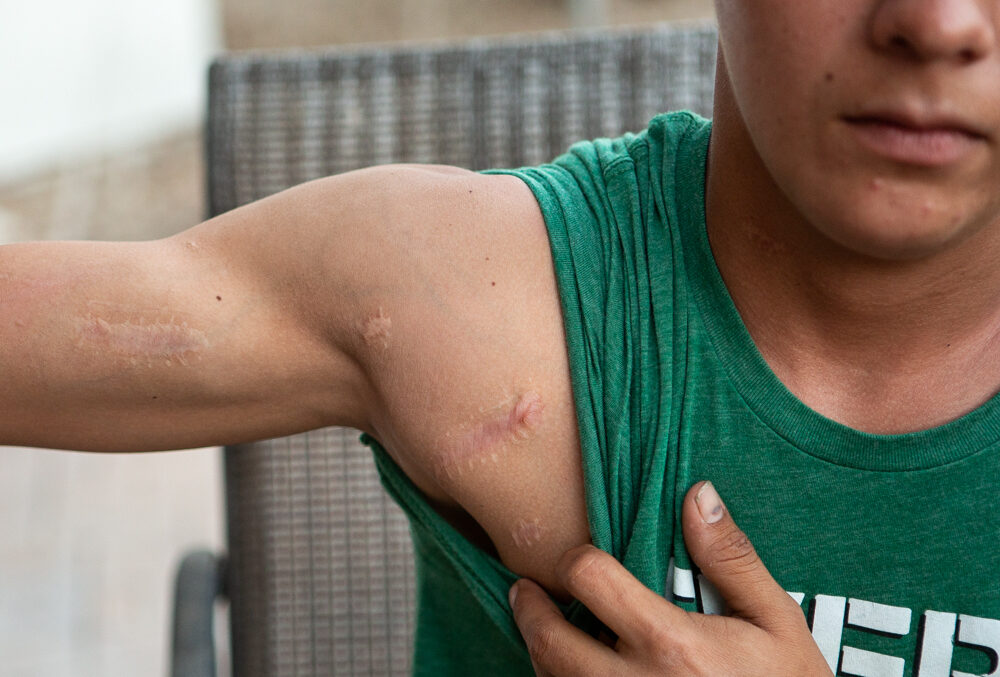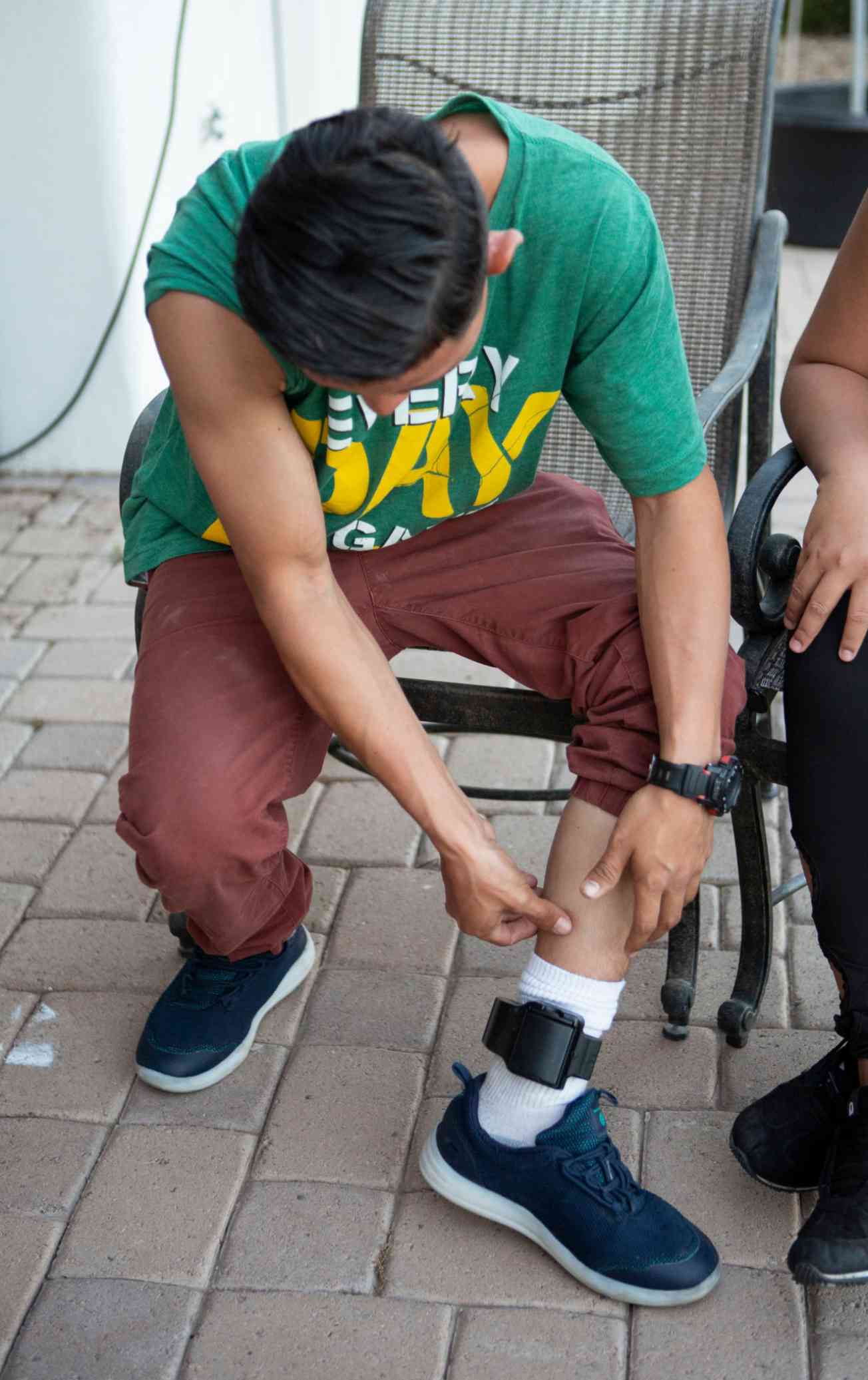Why We Flee: Gangs and Cartels
We lived peacefully. But when gang members wanted me to sell drugs in the middle of my fruit, I said, “No.”

I am from Honduras. It was a quiet day at my house. We lived peacefully. I had a business. I worked at my family’s fruit stand. I would say it was going well. Gang members told me they wanted me to sell drugs in the middle of my fruit. I said, “No.” Then they said they would kill me, my family, and my children if I didn’t do it. Again I said, “No.” Then one night seven or eight of them followed me with machetes and pistols. They followed me to kill me but thanks be to God they didn’t get me. I ran and ran and hid in a sewer. I got down into a sewer. Out of fear I got in. I heard them looking and shouting “He’s here, find him, find him!” and using bad words and them with pistols and machetes to kill me. They went to the house to find my wife and two children but they didn’t find them because they were with my mother.
Delinquency is very strong there. The gangs want to recruit you and sometimes when someone doesn’t want to, they kill them. I’m telling you, my group of [childhood] friends — [he used the term “camada,” which literally translates as litter] — there were 27 of us and now only three are left. All the others were killed, or are in jail, on drugs, or in gangs. From what I’ve seen we are only three with a life. The rest died from drugs and gangs and all that. And for that reason, I left my country.
So, then we came to Mexico. But it is the same in Mexico. I would say it is a plague. All of Central America has gangs, people who want to control others. In Mexico, I was a barber. I was working. And they [gang members] came to Mexico and in Mexico they did all this [he pointed to his mouth with teeth missing]. They grabbed me. They hit me. I didn’t have peace or safety. I had planned to stay in Mexico but if they were going to get me there, there was nothing left but for me to come here.
But just as there are bad people, there are also us humble people who like to work. We want our children to have a better future, to study, to learn, that they become great people. I have many dreams.
I have a skill. I can cut hair. But I can’t work if I don’t have a license. Here you have to have a permit to work and to get it you have to struggle and risk oneself because sometimes the government believes you or doesn’t believe you. It is true there is a lot of delinquency [at home]. I don’t dispute that. But just as there are bad people, there are also us humble people who like to work. We like to get ahead. I don’t want my children to suffer what I suffered. I want to get ahead, start a barbershop, start my business, and show the government they won’t be supporting me. If we can get the papers arranged, we will show the government what we can do. I had to work day and night so that my family is cared for. If my family is ok, then I’m ok.
Because I’m not yet 21, I have a lot of future ahead and she — (pointing to Arianna, his wife) — is only 19. Despite the fact that we are very young parents, I would say this has given us a lot of maturity. We want our children to have a better future, to study, to learn, that they become great people. I have many dreams. She is one of my dreams (pointing to his daughter). She is eager. She says she wants to be a doctor or a lawyer. Wow! That is a lot of inspiration for me, to work, day by day. It gives me drive.

Soon after Eduardo arrived in America, he got a job at a barbershop but three days later, by tracking him with his ankle bracelet, ICE agents showed up and told the owner she would be prosecuted if she allowed him to continue working. At the time the interview was conducted, he was jobless and had no way to support his family.
Our team members obtain informed consent from each individual before an interview takes place. Individuals dictate where their stories may be shared and what personal information they wish to keep private. In situations where the individual is at risk and/or wishes to remain anonymous, alias names are used and other identifying information is removed from interviews immediately after they are received by TSOS. We have also committed not to use refugee images or stories for fundraising purposes without explicit permission. Our top priority is to protect and honor the wishes of our interview subjects.